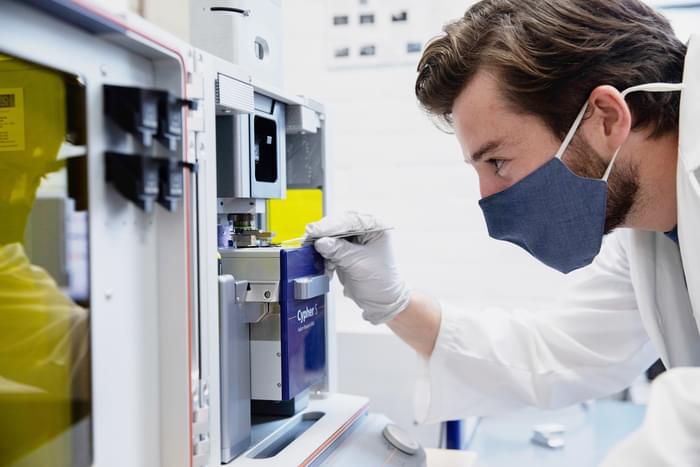In August, NASA released beautiful footage captured by Perseverance rover of Deimos, the smaller of Mars’ two moons.



We suggest an interpretation of quantum mechanics, inspired by the ideas of Aharonov et al. of a time-symmetric description of quantum theory. We show that a special final boundary condition for the Universe, may be consistently defined as to determine single classical-like measurement outcomes, thus solving the “measurement problem”. No other deviation is made from standard quantum mechanics, and the resulting theory is deterministic (in a two-time sense) and local. Quantum mechanical probabilities are recovered in general, but are eliminated from the description of any single measurement. We call this the Two-time interpretation of quantum mechanics. We analyze ideal measurements, showing how the quantum superposition is, in effect, dynamically reduced to a single classical state via a “two-time decoherence” process.

In this paper we present the two-state vector formalism of quantum mechanics. It is a time-symmetrized approach to standard quantum theory particularly helpful for the analysis of experiments performed on pre-and post-selected ensembles. Several peculiar effects which naturally arise in this approach are considered. In particular, the concept of “weak measurements’’ (standard measurements with weakening of the interaction) is discussed in depth revealing a very unusual but consistent picture. Also, a design of a gedanken experiment which implements a kind of quantum “time machine’’ is described. The issue of time-symmetry in the context of the two-state vector formalism is clarified.

Now their company, Sanas, is testing out artificial intelligence-powered software that aims to eliminate miscommunication by changing people’s accents in real time. A call center worker in the Philippines, for example, could speak normally into the microphone and end up sounding more like someone from Kansas to a customer on the other end.
Call centers, the startup’s founders say, are only the beginning. The company’s website touts its plans as “Speech, Reimagined.”
Eventually, they hope the app they’re developing will be used by a variety of industries and individuals. It could help doctors better understand patients, they say, or help grandchildren better understand their grandparents.


Yiran Sherry’s waters broke while the family was stuck in traffic. With contractions increasing rapidly and traffic barely moving, the couple realized they were not going to make it in time.
Keating Sherry placed the vehicle on autopilot after setting the navigation system to the hospital, 20 minutes away in the western suburb of Paoli.
He said he laid one hand gently on the car’s steering wheel as he attended to his wife.
During NeurIPS 2021, seven quantum computer scientists from Amazon came together to discuss the current state of quantum computing, some of the biggest challenges facing the field, and what the future might hold.
Panelists included:
• Simone Severini, director of quantum computing.
• Antia Lamas-Linares, principal research scientist.
• Earl Campbell, senior research scientist.
• John Preskill, Amazon Scholar.
• Katharine Hyatt, applied scientist.
• James Whitfield, Amazon Visiting Academic.
• Helmut Katzgraber, senior practice manager.
Follows us:
Website: https://www.amazon.science.
Twitter: https://twitter.com/AmazonScience.
Facebook: https://www.facebook.com/AmazonScience.
Instagram: https://www.instagram.com/AmazonScience.
LinkedIn: https://www.linkedin.com/showcase/AmazonScience.
Newsletter: https://www.amazon.science/newsletter.
#AmazonScience #Quantum #QuantumComputing #QuantumTech #NeurIPS

In aviation, any advancement in design must either reduce weight or the benefit has to be worth the extra weight. Researchers at the University of Bath seem to have achieved the perfect balance between the two by developing a way to reduce aircraft engine noise by up to 80% while adding almost no extra weight.
As Green Car Congress reports, the research team at the University of Bath developed a graphene oxide-polyvinyl alcohol aerogel, which only weighs 2.1kg (4.6lbs) per cubic meter and therefore makes it the lightest sound insulation ever manufactured.
Researchers developed a graphene aerogel that reduces engine noise to the same level as a hair dryer.

The ultra-slippery nature of a two-dimensional material called magnetene could be down to quantum effects rather than the mechanics of physical layers sliding across each other, say researchers at the University of Toronto in Canada and Rice University in the US. The result sheds light on the physics of friction at the microscopic scale and could aid the development of reduced-friction lubricants for tiny, implantable devices.
Two-dimensional materials are usually obtained by shaving atomically thin slices from a sample of the bulk material. In graphene, a 2D form of carbon that was the first material to be isolated using this method, the friction between adjacent layers is very low because they are bound together by weak van der Waals forces, and therefore slide past each other like playing cards fanning out in a deck. For magnetene, the bulk material is magnetite, a form of iron oxide with the chemical formula Fe3O4that exists as a 3D lattice in the natural ore. The bonds between layers are much stronger in magnetene than in graphene, however, so its similarly low-friction nature was a bit of a mystery.